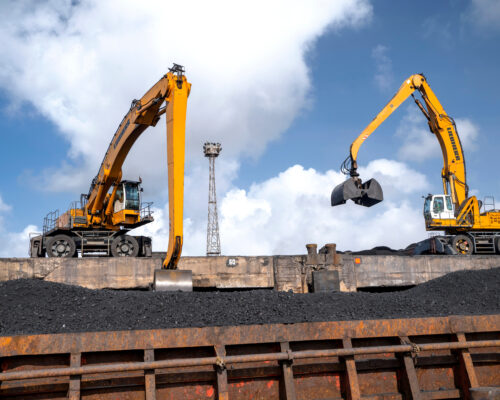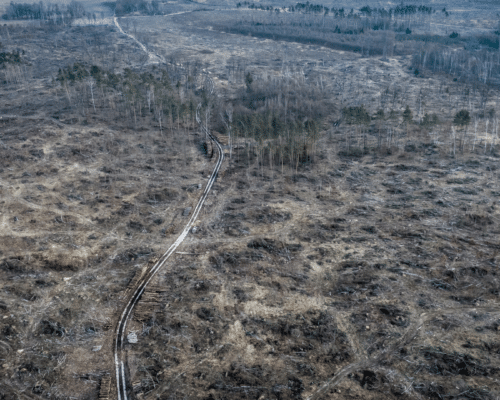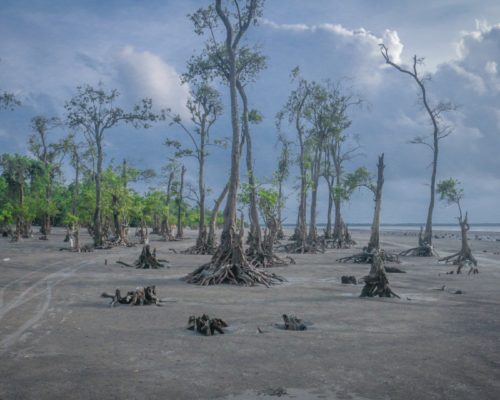COP27: Leaders Call For Rapid Climate Finance
Photo by Buravleva
09 November 2022 – by UN Climate Summit
Mottley Suggested Billions in Tax for Climate Finance
$37bn. That’s how much the 10% tax on the profits of oil & gas producers suggested at 2022 UN Climate Change Conference COP27 by Barbados PM Mia Mottley could have delivered for climate finance in the first nine months of this year alone. The figure is based on the profits of the 15 biggest listed oil and gas majors (BP, Shell, Exxon, Aramco etc) and is roughly equivalent to the economic losses from the Pakistan floods. “How do companies make $200bn in profits in the last three months and not expect to contribute at least 10 cents in every dollar of profit to a loss and damage fund?” asked Mottley. Perhaps not too much to ask when year-to–date profits of the majors are up 131%.
Support for Developing Countries to Tackle Climate Risks
Mottley’s call came on an opening day high on rhetoric but low on cash. Strong words are one thing, but in a year when $100bn has been mobilised to help Ukraine defend itself from Russia’s attack, the lack of climate and development finance will seem galling to many in the developing world. UK PM Sunak’s “new” $1.5bn pledge turned out to be from an existing $11.6bn pot. The good news is No.10 confirmed that cash will be delivered by the 2026 deadline.
Call for Reviewing Debt Repayment Rules for Vulnerable Countries
Mottley’s message that international finance isn’t unlocking access to capital or support at the scale and speed needed was backed by French President Macron yesterday. He called for an expert group to drive rapid, new climate finance for vulnerable countries. France, Colombia and Barbados are all now calling for the IMF, World Bank and OECD to review their debt repayment rules for countries hit by impacts. But other leaders might need their hands held on this agenda. Hear more from PM Mottley at a press briefing at 16:30 today.
“Climate Solidarity Pact” Suggested by UN Secretary António General Guterres
UN Secretary General Guterres is also backing debt-swaps or similar mechanisms for middle-income countries like Pakistan battling the high costs of climate impacts as he called for a new “climate solidarity pact”. “For countries like Pakistan, there should be a way to swap the payment of their debt for investments in rehabilitation and recovery and reconstruction,” he said on Monday, urging G20 leaders to agree to this next week. Such swaps are typically for low-income countries, but pressure to undertake some serious reforms in the Bretton Woods institutes continues to build.
Prosperity Plans
Much is riding on the Just Energy Transition Partnership deals this COP, with Macron claiming they offer a way to make the “energy revolution possible”. The South African deal is the most advanced but still being worked on – the US government has only provided USD20 million to date, even though the total package promised was $8.5bn. Also on the table are potential deals for India, Indonesia, Senegal & Vietnam.
Tired of waiting for support, some poorer nations are crafting their own Climate Prosperity Plans – notably Bangladesh, Ghana, the Maldives and Sri Lanka. Writing in Politico, Bangladesh PM Sheikh Hasina says the plans are a “bid to shift our trajectory from vulnerability to resilience and, in turn, to prosperity.” Dhaka’s plan is the most detailed climate plan by any developing country to date and lays out a $183bn investment agenda until 2030.
Without the new plan, Bangladesh expects climate change and disaster-related economic losses to hit $40bn by 2030. Dhaka hopes to limit this to $10-15bn while radically improving per capita GDP, cutting unemployment and reducing climate risks to the workforce. Seeking external and internal investment to support the plan, the government will launch a new range of Resilience Bonds this decade. The plan will see an accelerated phase out of coal, a boost towards electric transport and 30% renewables in the overall energy mix by 2030 (as opposed to its current NDC target of 4%-6%).
Contentious Credits
The UN-appointed high level expert group on net zero publishes recommendations today on net-zero commitments by cities, regions and corporations. There has been a wave of voluntary pledges since Paris, but they’ve not always been accompanied by the kind of action that reduces emissions and, in some cases, have been outright greenwash. We’re told the recommendations put a clear line in the sand, so there can be no more excuses as the carbon budget evaporates. The report will be published here at 15:30.
Offsets are a point of contention here. A push by US climate envoy John Kerry for corporations to be given new avoidance offsets for investing in energy transitions in developing countries is kicking up a storm. That’s because avoidance credits have a really bad reputation – it’s too difficult to prove the emissions reductions would not have happened anyway. It’s already been decided that Article 6 negotiations at COP27 will not consider including avoidance credits because of this integrity problem (see more here).
Kerry will no doubt have his eyes on today’s midterm elections that determine which party controls Congress for the next two years – both chambers are currently under Democratic majorities. The Republicans are likely to take back the House but it’s still too close to call for the Senate.
A thornier issue is how Congress will appropriate money annually, and this impacts environmental justice, clean energy & tech loans, and climate finance. Midterm elections also determine state governors and local leaders, key in shifting economies to clean energy and setting climate targets. One thing to keep an eye on is how Trump’s hand-picked candidates get on, which will show how much sway he still has within the Republican party.
unclimatesummit.org is developed by: Periodistas por el Planeta, ClimaInfo, CarbonCopy and İklim Haber




